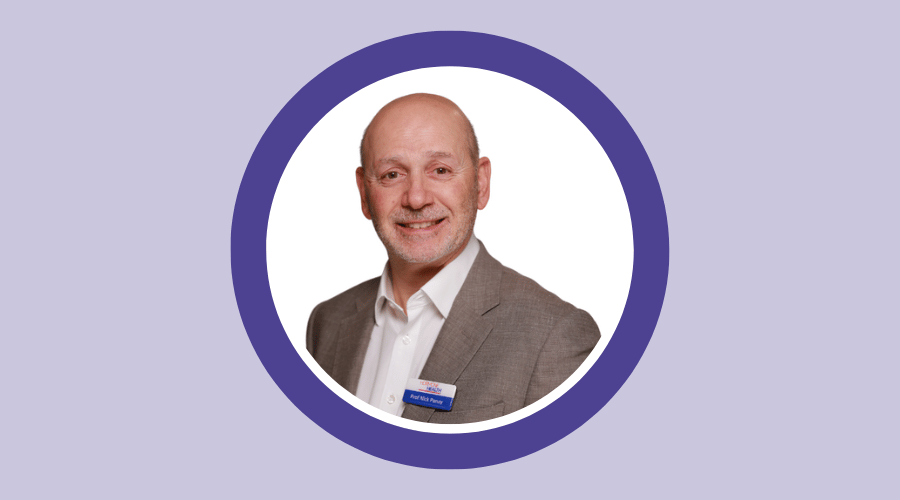Menopause Matters: Life’s Second Half Can be an Opportunity

Hormone Health Founder and Director, Professor Nick Panay was recently interviewed by Menopause Matters, the only magazine of its kind, specifically written for women who are approaching or experiencing the menopause. Below you can see a copy of his interview provided courtesy of Menopause Matters or you can download a PDF copy here.
Professor Nick Panay is a consultant gynaecologist with a special interest in reproductive medicine, menopause and menstrual disorders and is president of The International Menopause Society.
For World Menopause Day this year Nick was the lead author of a White Paper that aimed at providing an IMS position statement about menopause and HRT and in particular to address some of the key controversies. The paper’s purpose is to act as a blueprint upon which to base the future ethical management of menopause from both practical and aspirational perspectives. Menopause Matters asked him about it and HRT.
Q: Why did you produce the IMS White Paper?
“The aim of the IMS White Paper was to provide a wellbalanced educational narrative of the menopause and hormone replacement therapy (HRT) from IMS experts. The paper provides welcome advice and clarity from the misinformation that exists around menopause.
Healthcare providers worldwide have a duty to provide a supportive, informative environment where women can freely discuss menopause as it affects them individually, express their concerns and priorities and receive personalized care to optimize their health and well-being in the second half of their lives.”
Q: How and why do you think menopause is perceived by some as a natural stage in life and others as more of a ‘modern disease?’
“The menopause has become a natural stage of life due to the increase in life expectancy; historically many women did not go through menopause because they had shorter maximum life expectancies.
Women who go through menopause without any symptoms or health problems do not require treatment.
However, it is a good opportunity for all women to optimise lifestyle, diet, exercise, reduce alcohol consumption and stop smoking.”
Q: What has that meant for the reputation and status of HRT, particularly in the UK?
“HRT should be regarded as one of the treatment options in our toolkit which should be made available where required on an individualised basis having carefully weighed up the pros and cons alongside general health interventions, complementary therapies and non-hormonal treatment options.
It should not be regarded as the “elixir of youth” but rather as a medicine with possible adverse effects and risks as well as considerable benefits when used appropriately.”
Q: How has the IMS decided to address that now and into the future?
“Information from societies such as the British and International Menopause Societies about management of the menopause should be as balanced as possible in order to empower women to make personalised choices about their menopause.
Each woman’s menopause transition will be different, but evidence-based information will enable to them to make choices that are right for them as individuals.”
Q: The IMS’s 5Ws about HRT leaflet for women, aims to be clear and guide women about evidence-based resources. Nonetheless, HRT is a treatment that has to be prescribed by a healthcare professional. So, is there still a danger that a complex treatment, with benefits and risks, becomes oversimplified…i.e more unintended consequences?
“The aim of the 5Ws leaflet and the white paper is to encourage women and their informed healthcare professionals (HCPs) to start the conversation about menopause and HRT.
It is therefore vitally important that as many heathcare professionals as possible are trained to provide further evidence based, balanced advice, and that all women going through the menopause transition have the opportunity to discuss issues concerning their menopause. They may wish to make a list of questions to take with them to fuel the conversation and if their HCPs do not have the expertise to manage complex cases, these women should be referred to specialist menopause services.”
Q: What role do media, Government, regulators and pharmaceutical companies have to play in helping / empowering women to navigate their midlife stage?
“We have a duty of care to women, and to society in general, to ensure that all sources of information are delivering information which is evidence based and unbiased. In order to achieve this good communication across sectors is of paramount importance.
Ideally, this information should be based on well-funded research and coordinated by national and international menopause societies.
The International Menopause Society has 64 affiliated national and regional societies which facilitates the global dissemination of evidence-based guidelines which can be adapted to local requirements (languages, cultures, available resources etc).”
Q: Given your wealth of experience in treating and helping women is there more they can do to help themselves and embrace the positive side of what is now, for many, a midlife stage in life rather than a sign of ageing?
Indeed, menopause should be regarded as an opportunity to optimise quality of life and long-term health.
I prefer to refer to it as “middle youth”! Cycle related problems such as heavy painful periods, PMS, endometriosis and other issues will resolve post menopausally so there are many health advantages to the menopause.
Most menopause related symptoms will improve with time and do not always require treatment. Although we should encourage a life course approach to optimising health, a menopause check will enable the identification of risk factors for osteoporosis, cardiovascular disease and other conditions.
This information can then be used to ensure that the second half of women’s lives is as healthy (if not healthier!) than the first half. Also, we must not forget that longevity means very little without quality of life and good health!
More information
Menopause Matters is the only magazine of its kind, specifically written for women who are approaching or experiencing the menopause.
The magazine is available digitally and the latest issue and back copies are available here.